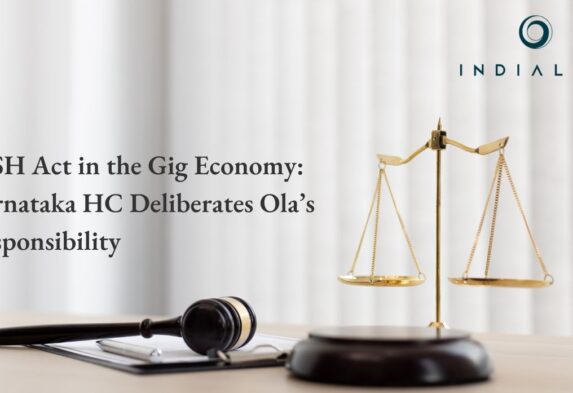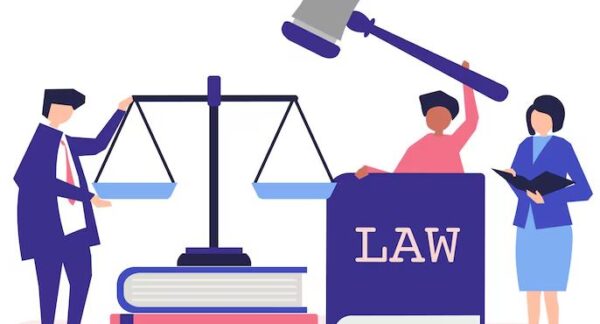PoSH Act in the Gig Economy: Karnataka HC Deliberates Ola’s Responsibility


A division bench of the Karnataka High Court has stayed a single-judge verdict that had classified the relationship between ANI Technologies Private Limited (Ola) and its drivers as one of employer-employee under the Sexual Harassment of Women at Workplace (Prevention, Prohibition, and Redressal) Act, 2013 (PoSH Act).
Table of Contents
Overview of the Single-Judge Verdict
The single-judge’s order, lauded as progressive and well-reasoned, holds significant implications for interpreting the terms employee-employer under the PoSH Act and the definition of an “intermediary” under the Information Technology Act, 2000. The outcome of the division bench’s decision will be critical in shaping the future of employment relationships in the gig economy.
Case Background
The case arose from a complaint filed by the petitioner, a woman who alleged sexual harassment by an Ola taxi driver, who was later found to be an impersonator. When the petitioner sought recourse through Ola’s Internal Complaints Committee (ICC), her request was denied on the grounds that the ICC lacked jurisdiction, claiming there was no employer-employee relationship between Ola and the driver.
Legal Issues for Determination
The single-judge bench addressed the following key questions:
- Are Ola and its ICC subject to the writ jurisdiction of the High Court?
- Can Ola’s drivers be classified as “employees” under the PoSH Act?
- Should Ola be considered solely an “intermediary” under the IT Act?
- Did the ICC and Ola breach their statutory obligations under the PoSH Act?
- Is the petitioner entitled to relief and compensation?
Key Observations and Findings
1. Amenability to Writ Jurisdiction
The court held that Ola’s statutory obligation to establish an ICC and address sexual harassment complaints constitutes a public duty, making it subject to writ jurisdiction under Article 226 of the Constitution of India.
2. Driver-Subscriber as an “Employee” & Ola as an Intermediary
The court emphasized that the definition of “employee” under Section 2(f) of the PoSH Act is broad and includes individuals connected to an organization’s business activities. The driver, performing services integral to Ola’s operations, was therefore deemed an “employee” for the purposes of the PoSH Act.
Ola’s claim of being merely an intermediary under the IT Act was rejected. The court noted that Ola exercises significant control over drivers and passengers, from fare setting to service standards, thereby qualifying it as an employer rather than just a technology facilitator.
3. Breach of Statutory Obligations
The ICC and Ola were found guilty of negligence in handling the petitioner’s complaint. The court observed that the ICC failed to conduct a formal inquiry, dismissing the complaint based on a pre-judged notion that drivers were not employees.
The court also noted that the petitioner endured severe trauma after being confined in a vehicle with an impersonator driver, an ordeal that violated her statutory, contractual, and fundamental rights to safety and dignity. The lack of urgency shown by Ola and the ICC in addressing her grievance was deemed a deliberate failure of duty.
4. Reliefs Granted by the Single-Judge Bench
The court ordered the following:
- Investigation by ICC: The ICC was directed to investigate the petitioner’s complaint from September 30, 2018, and complete the inquiry within 90 days.
- Follow-Up by Transport Authority: The Karnataka State Transport Authority was asked to continue its proceedings against Ola, following a notice issued on August 16, 2024, and to conclude within 90 days.
- Compensation: Ola was ordered to pay ₹5,00,000 in compensation to the petitioner and ₹50,000 towards litigation expenses within 30 days.
- Penalty on Transport Officer: The Additional Commissioner for Transport was instructed to pay ₹1,00,000 to the Karnataka Legal Service Authority in his personal capacity.
- Confidentiality Compliance: All parties were reminded to maintain confidentiality as mandated under Section 16 of the PoSH Act.
Conclusion: Implications for Gig Economy Workers
The single-judge order, now stayed by the division bench, represents a bold step toward protecting women from harassment under the PoSH Act. The ruling highlights the importance of corporate accountability and underscores the growing need for corporations to meet their statutory obligations toward both employees and customers.
The division bench’s forthcoming decision will have far-reaching consequences for how courts interpret the PoSH Act in relation to the gig economy, setting a precedent for the status of platform workers. This case serves as a critical reminder that companies operating in the digital age cannot escape public law obligations by merely labelling themselves as “intermediaries”.




